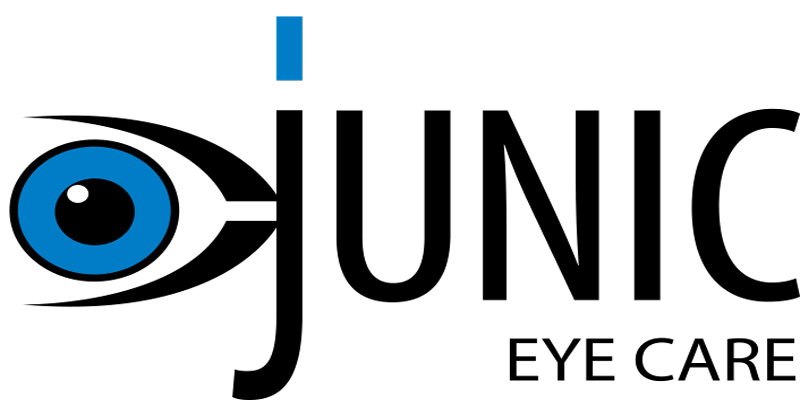Now we have talked about why protection for our eyes is very crucial, it is imperative to equip us with how to go about it.
I’m Juliet Menakaya, the owner and principal optometrist at Junic Eye Care. With over a decade of experience in eye care, I’m passionate about helping my patients in Canberra understand how to best care for and protect their eyes.
Here are some of the essential tips for summer eye protection:
- Invest in Quality Sunglasses:
Not all sunglasses are created equal. When shopping for eyewear, look for sunglasses that offer:
– 100% UV Protection: Ensure they block both UVA and UVB rays.
– Polarized Lenses: These reduce glare from reflective surfaces like water and sand, enhancing comfort and clarity.
– Wraparound Styles: These provide additional protection by blocking sunlight from the sides.
Why UV400 Sunglasses Are Essential for Eye Protection
Not all sunglasses offer the same level of protection. If you want to take your eye health seriously, UV400 sunglasses are a smart choice. But what does UV400 mean, and why is it so important?
UV400 sunglasses block 100% of harmful UV rays, including both UVA and UVB light, up to 400 nanometres. This complete protection shields your eyes from the sun’s harmful rays, which can lead to long-term issues like cataracts and macular degeneration. UV400 lenses are the best way to protect your eyes, whether you’re enjoying outdoor activities or just relaxing in the sun.
In places like Australia, where UV levels are high, investing in UV400 sunglasses is key. They come in many styles, including everyday wear, sports glasses, and prescription options. Whether you’re cycling, running, or at the beach, UV400 sunglasses will give you the best protection.
Don’t risk your eye health—opt for UV400 sunglasses for top-notch protection and enjoy the outdoors safely!
Polarised vs. Non-Polarised Sunglasses: Which One is Right for You?
When picking sunglasses, it’s not just about how they look—it’s about how they work, too. One key choice is whether to get polarised or non-polarised lenses. Both protect from UV rays, but they handle glare differently.
Polarised Sunglasses have a special coating that reduces glare from things like water, roads, or snow. This makes your vision clearer and more comfortable, especially if you’re driving, cycling, or doing outdoor activities. Polarised lenses help you see better by cutting down on the bright reflections that can strain your eyes.
Non-Polarised Sunglasses, on the other hand, just darken your vision to block UV rays. They’re great for general use, like walking around or relaxing on the beach. While they don’t reduce glare like polarised lenses, they still provide UV protection.
So, which one should you choose? If you’re outdoors a lot, especially in bright or reflective environments, polarised sunglasses will give you a clearer view. But for everyday use, non-polarised sunglasses are still a good choice.
Both types keep your eyes safe from the sun—it’s just about picking the right pair for your needs.
- Wear a Wide-Brimmed Hat
A stylish wide-brimmed hat can provide extra protection by shading your eyes from direct sunlight. This can reduce glare and further shield your eyes from harmful UV rays.
- Be Mindful of Water and Sand
Water and sand can reflect UV rays, increasing your exposure. Whether you’re lounging on the beach or by the pool, ensure you’re always wearing your sunglasses. Consider polarized lenses to cut down on glare from the water’s surface.
- Avoid Looking Directly at the Sun
Never stare directly at the sun, even during an eclipse. This can cause serious eye damage. If you’re participating in outdoor activities, like watching fireworks, ensure you’re using proper eye protection.
- Stay Hydrated
Hydration plays a crucial role in maintaining overall eye health. Drinking plenty of water helps prevent dry eyes, which can be exacerbated by heat and outdoor conditions.
- Schedule Regular Eye Exams
Regular eye examinations are vital for maintaining good vision and early detection of any potential issues. If you haven’t had an eye exam in a while, summer is a great time to schedule one at Junic Eye Care.
- Use Protective Eyewear for Activities
If you’re engaging in sports or outdoor activities, consider using protective eyewear designed for those specific activities. This can help shield your eyes from injury while ensuring optimal vision.
Conclusion
As summer approaches, make it a priority to incorporate these eye protection tips into your routine. At Junic Eye Care, we are committed to helping you maintain healthy vision year-round. If you have any questions about eye protection or need to schedule an eye exam, don’t hesitate to reach out to us. Enjoy the sunshine but remember—your eyes deserve protection too!
To visit our optometry practice, click the “Book Online” button at the top of the page or call (02) 6152 8585 today.
References:
1:https://www.cancer.org.au/cancer-information/causes-and-prevention/sun-safety/uv-index

CANBERRA OPTOMETRIST
Juliet obtained her Doctor of Optometry degree from the University of Benin, Nigeria in 2006. She completed an internship programme before migrating to Australia, where she completed a master’s degree in public health at the University of Sydney in 2014. Following this, Juliet obtained a Master of Orthoptics from the University of Technology Sydney (UTS) in 2017.
Juliet has completed her competency in optometry examination with OCANZ (Optometry Council of Australia and New Zealand), and obtained her ophthalmic prescribing rights from ACO (Australian College Of Optometry Victoria). Juliet has worked in various positions, including retail Optometry, the Ophthalmology Department at Canberra Hospital, and more recently, at the John Curtin School of Medical Research (ANU).
As a dedicated Canberra optometrist, Juliet is passionate about helping people with low vision, and binocular vision anomalies hence her interests in Low Vision Rehabilitation, Eccentric Viewing Training and Paediatric optometry.

